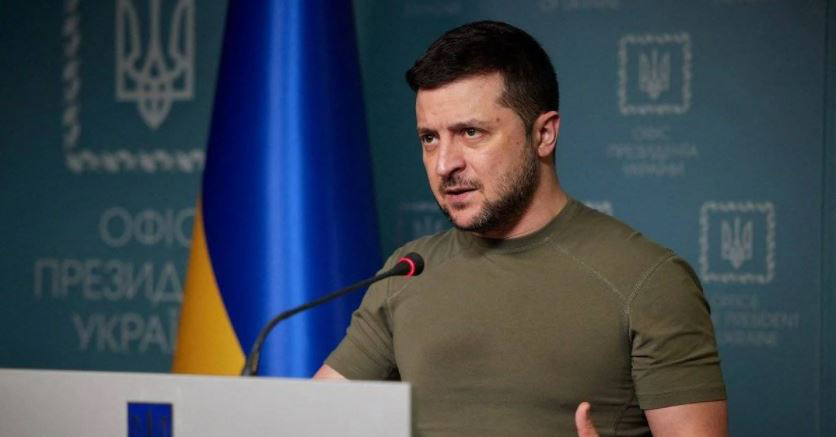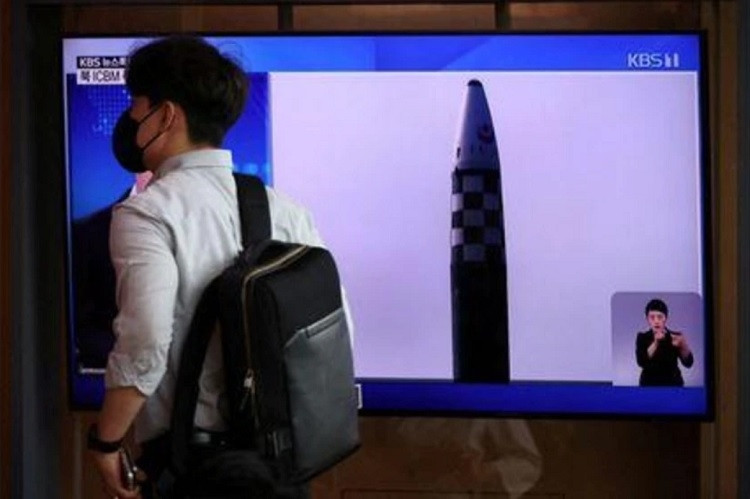Once fiercely critical of Saudi Arabia, President Biden now wants to improve relations with the Middle Eastern oil giant, when the US faces an energy crisis.
After the death of journalist Jamal Khashoggi in 2018, US intelligence determined that Crown Prince Mohammed bin Salman, the de facto leader of Saudi Arabia, was the one who ordered the assassination. This report has caused the relationship between the US and Saudi Arabia to somewhat fracture, although the president Donald Trump still maintains a friendly policy with Riyadh.
Everything changed when he Joe Biden elected president of the United States. During the election campaign, he once vowed to make Saudi Arabia “pay the price”. After taking office, he released intelligence reports on Khashoggi’s murder and imposed sanctions on some of those involved, although he did not take action against Crown Prince Mohammed himself.
The Biden administration has said it is not willing to end its nearly eight-decade relationship with Saudi Arabia, a key ally on many fronts.
“Saudi Arabia is an important partner for us in dealing with extremism in the region and challenges posed by Iran,” Foreign Minister Antony Blinlen said on June 1. He added that human rights are important, but the US “has to take into account our overall interests in that relationship”.
However, human rights issues related to the Khashoggi case and Saudi Arabia’s role in the war in Yemen have caused relations between Riyadh and Washington to plummet. President Biden since taking office has repeatedly refused to talk directly with Crown Prince Mohammed.
In March, after the US imposed a ban on Russian oil, a number of White House officials went to Riyadh, urging Saudi Arabia to increase oil production to cool down world oil prices. Crown Prince Mohammed did not respond to this request of the US.
But after a long period of increasing pressure to isolate Crown Prince Mohammed, Mr. Biden is planning to visit Riyadh at the end of June, after visiting Israel and meeting Prime Minister Naftali Bennett.
Although the specific schedule of the visit has not been finalized, President Biden is likely to meet and shake hands with Crown Prince Mohammed, as well as hold talks with many other Arab leaders such as Egypt, Jordan, Iraq and the UAE.

President Joe Biden in the East Room of the White House, Washington, US on May 25. Image: AFP.
The move to “make peace” with Saudi Arabia was made by the Biden administration in the context that the US is facing a terrible energy crisis, causing gasoline prices to continuously remain high, exacerbating inflation. development and pushed the approval rating of the US President to a record low.
After Russia launched a military campaign in UkraineMr. Biden realized that it was necessary to join hands with other oil giants to replace Moscow’s supply and create stability for the world energy market. The group of oil producing countries OPEC +, led by Saudi Arabia, on June 2 announced that it would increase production in July and August.
The Biden administration has also recently stepped up cooperation with Saudi Arabia on a variety of issues, especially in efforts to find a way to end the eight-year Saudi-led war in Yemen. A two-month truce was extended by the warring parties in Yemen on June 2, and Mr. Biden has praised Saudi Arabia.
“Saudi Arabia has demonstrated leadership by taking early initiatives to support and implement the provisions of the UN-backed ceasefire,” he said.
Peter Baker and Ben Hubbard, two analysts at NY TimesThis is part of the US President’s efforts to heal the rift in the relationship between the two countries.
US and Saudi officials have made several visits in recent months. Brett McGurk, the White House coordinator for the Middle East and North Africa, traveled to Saudi Arabia last week to discuss President Biden’s visit and other issues. Deputy Defense Minister Khalid bin Salman, younger brother of the crown prince of Saudi Arabia, visited Washington last month and met with US National Security Adviser Jake Sullivan.
The US administration expressed satisfaction when Saudi Arabia supported a UN resolution condemning Russia’s military campaign in March and Riyadh also recently sent a message urging Moscow to lift the blockade of the waters around UKraine to free up 25 million tons. Food is stuck in this country.
However, President Biden’s efforts to make peace may face many hurdles, as Saudi Arabia remains skeptical of his policies, according to commentators Baker and Hubbard. In addition to publishing a report on the case Khashoggi murderthe Biden administration removed Yemen’s Houthi rebel group from its list of terrorist organizations, reversing a Trump-era policy that Riyadh took so seriously.
Riyadh also resented the Biden administration’s push to switch from fossil fuels to renewable energy, saying it undermines its business model. In addition, Saudi Arabia is also concerned about the possibility of the US resurrecting the Iran nuclear deal, which Riyadh believes could increase regional influence for Tehran.
In an interview with the news agency Arab News Last month, Prince Turki al-Faisal, a senior member of the Saudi royal family, claimed the US had let them down.
In addition to the fact that President Biden has not met Crown Prince Mohammed despite taking office for more than a year, the decision to remove US Patriot anti-aircraft missile batteries from Saudi Arabia at a time when the kingdom is becoming a target of aerial aircraft. The pilot, missile of the Houthi rebels in Yemen also makes Riyadh unhappy.
“It is not a single incident,” Prince Turki said. “I think that’s the general tone of the current relationship,” said Turki al-Faisal.

Saudi Crown Prince bin Salman in Riyadh in April 2021. Image: Reuters.
The move to increase production that Saudi Arabia and other countries in OPEC + announced on June 2 may not have a big impact on gasoline prices in the US. But some US officials believe that as bilateral relations improve, Saudi Arabia will increase oil production by September and have enough impact on the market.
Some experts are skeptical of this. Bruce Riedel, a scholar at the Brookings Institution, said Biden’s visit to Riyadh could only promote a ceasefire in Yemen, rather than a pledge to pump more oil into the market.
“The truce could save thousands of lives, especially children in Yemen,” Riedel said. “But the American people are looking at gas prices, not Yemen. Saudi Arabia doesn’t appear to be doing anything substantial to stabilize gasoline prices, nor is it clear if they can do enough to help bring prices down. Mr. Biden’s visit doesn’t seem to give voters what they want: lower gas prices.”
Thanh Tam (Follow NY Times)
at Blogtuan.info – Source: vnexpress.net – Read the original article here



